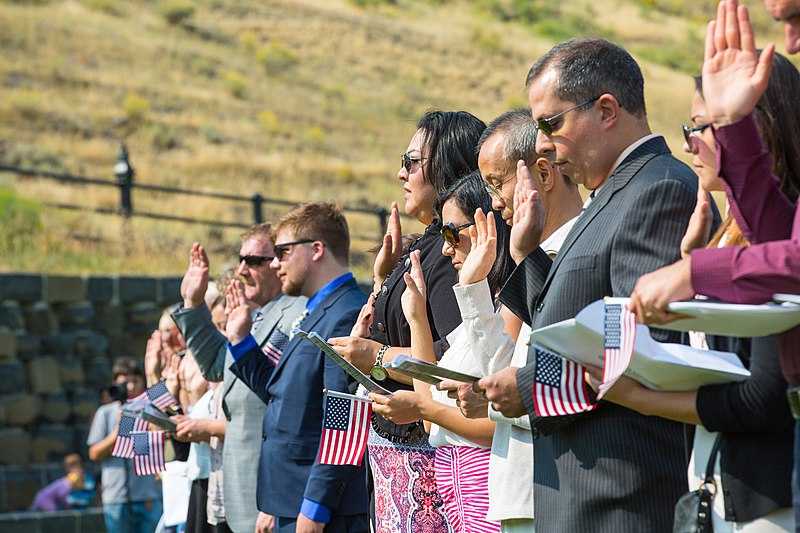Atheist Loses Attempt to Remove ‘So Help Me God’ From US Naturalization Oath
 BOSTON — A French-born woman who lives in Massachusetts has lost her appeal effort to have the phrase “so help me God” removed from the United States naturalization oath, as the First Circuit Court of Appeals ruled on Friday that its inclusion is not unconstitutional.
BOSTON — A French-born woman who lives in Massachusetts has lost her appeal effort to have the phrase “so help me God” removed from the United States naturalization oath, as the First Circuit Court of Appeals ruled on Friday that its inclusion is not unconstitutional.
“[W]e hold that, under the most recent framework used to evaluate whether established practices with religious content violate the Establishment Clause, the phrase ‘so help me God’ in the naturalization oath as a means of completing that oath does not violate the Constitution,” wrote Judge Juan Torruella, nominated to the bench by then-President Ronald Reagan, on behalf of the three-judge panel.
The court also noted that the woman can opt out of using the phrase, while not denying the right of others to speak it if desired.
“[T]he government has not prevented Perrier-Bilbo from expressing her atheistic religious beliefs. Nor can Perrier-Bilbo claim that the regulation prescribing the oath prohibits her from having a public ceremony during which she does not have to say the phrase ‘so help me God,’” Torruella outlined.
“Rather, the regulations enable her to alter the oath, and the government has given her alternatives to accommodate her beliefs so that she is comfortable during her ceremony and is able to naturalize.”
“Perrier-Bilbo’s actual complaint seems to be that the Government will not change the oath for everyone attending the public ceremony so that no one utters the words to which Perrier-Bilbo objects. Perrier-Bilbo certainly does not have a protected liberty interest in that,” he added.
According to the ruling, Olga Perrier-Bilbo, an atheist, moved to the United States from France in 2000. Two years later, she became a permanent resident and went on to obtain a green card.
In 2008, Perrier-Bilbo applied to become a U.S. citizen and was approved. However, as she did not want to repeat the phrase “so help me God” in the naturalization oath, she wrote to the office of United States Citizenship and Immigration Services to ask that the statement be left out of the recital — for everyone.
Perrier-Bilbo was advised that she could either “participate in the oath ceremony and omit the ‘so help me God’ language, or
schedule a private oath ceremony where the government would not use that phrase.” As she was dissatisfied with either choice, Perrier-Bilbo obtained legal counsel from Michael Newdow, an atheist who has also sought to have the phrase “in God we trust” removed from American currency.
In 2017, a lawsuit was filed challenging the inclusion of God in the oath, asserting that it violated the Constitution’s Establishment and Free Exercise Clauses, as well as the federal Religious Freedom Restoration Act.
A district court ruled in favor of the government, declaring that “the use of the phrase … or similar invocations in public oaths and statements is, along with legislative prayer, a well-established tradition that can be traced back to the nation’s founding.”
The First Circuit Court of Appeals agreed last week, pointing to the recent U.S. Supreme Court ruling in American Legion v. American Humanist Association, which found that removing public faith-based displays could “strike many as aggressively hostile to religion” and would therefore not be neutral as the Constitution requires.
It also echoed the district court in noting that “there is an established history of invocations of God in public oaths and statements tracing back to the founding era.”
Become a Christian News Network Supporter…







Comments are closed.